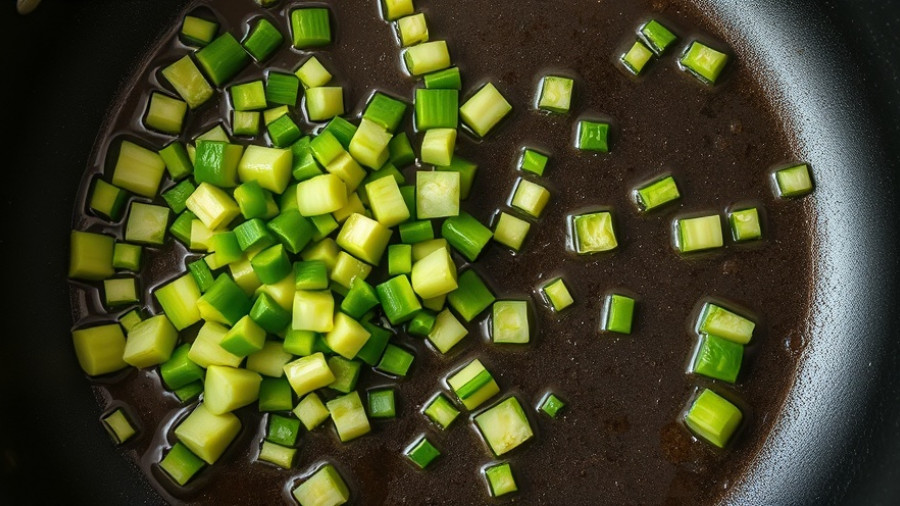
Answering the Age-Old Question: Which Cooking Oil is Best?
Choosing the right cooking oil is a topic often colored by misinformation and marketing hype. With the enormous variety of cooking oils available, consumers find themselves navigating a complex maze of health claims, environmental impacts, and ethical considerations. Informed decisions about cooking oils can benefit not only your health but also the environment and social justice.
Understanding the Impact of Cooking Oils: A Global Perspective
Oil crops account for nearly 37% of agricultural land use globally, which underscores their substantial role in both our diets and economies. Vegetable oils, ranging from soybean to palm oil, are not just cooking staples; they are vital for economies and food production systems around the world. However, the production of these oils carries significant health and environmental consequences. With a projected increase of two billion people on the Earth in the coming decades, the urgency for sustainable oil production has never been higher.
The Hidden Costs of Vegetable Oils
The Environmental Toll: The production of vegetable oils can lead to deforestation, loss of biodiversity, and increased greenhouse gas emissions. For instance, palm oil, while efficient in terms of output, has been linked to significant deforestation in tropical areas, affecting the habitats of countless species. On the other hand, oils like sunflower and soybean are associated with heavy pesticide usage and are often produced in ways that contribute to soil degradation.
Health Implications: Despite the long-standing negative connotations associated with dietary fat, the actual relationship between fat types and health is nuanced. While trans-fats are undeniably harmful, the impacts of saturated fats are context-specific. Studies suggest that consuming specific types of fats can even contribute positively to health, challenging consumers to rethink their preconceived notions.
Transparency: A Key Consumer Need
In an era of information overload, consumers are increasingly showing a desire for transparency in food sourcing and production. Many cooking oil labels simply state “vegetable oil” without providing details about the specific type or origin. This lack of clarity not only fuels consumer distrust but also prevents them from making purchases that align with their ethical and health values. Ensuring ingredient transparency can empower consumers to choose oils that support their health and sustainability goals.
The Right Choices: Navigating Cooking Oil Options
For health-conscious consumers and environmentally-aware shoppers, making informed choices can drastically change the impact of cooking oil consumption. Each type of cooking oil carries different benefits and drawbacks:
- Avocado Oil: While high in heart-healthy fats, avocado production requires significant water resources, making it less sustainable.
- Coconut Oil: Linked to biodiversity loss, coconut oil's production can be environmentally detrimental despite its popularity.
- Canola Oil: This oil is efficient but often associated with the use of controversial pesticides that may affect wildlife.
- Palm Oil: Highly efficient but fraught with environmental concerns, opting for sustainably sourced palm oil can be a better choice.
- Zero Acre Oil: An emerging alternative made through fermentation, boasting low environmental impact, requires far less land and water while providing great health benefits.
Consumer Power: Voting with Your Dollar
When it comes to food products, consumers possess a unique power: their purchasing decisions can catalyze systemic changes. Supporting brands committed to ethical sourcing and environmentally sustainable practices helps promote a more just and sustainable food system. Recognizing the misleading marketing surrounding cooking oils and advocating for better transparency helps consumers align their purchases with their values.
Looking to the Future: Trends in Cooking Oils
As global demand for cooking oils continues to rise, the industry must adapt to changing consumer preferences. A calculated shift towards cleaner, more sustainable production systems is not just desirable but necessary. Whether it’s focusing on less impactful crops or innovative oils like Zero Acre, the future of cooking oil may be brightened by awareness and consumer choice.
Conclusion: Make an Informed Choice
The question of which cooking oil is best extends far beyond health claims. It encompasses ethical concerns about the environment, transparency, and the livelihoods of farmers around the globe. As consumers, your knowledge about these oils empowers you to make choices that contribute to both your health and the well-being of our planet. Join the movement for health and wellness in cooking! Consider switching to healthier oils and support brands that prioritize sustainable practices.
 Add Element
Add Element  Add Row
Add Row 




Write A Comment